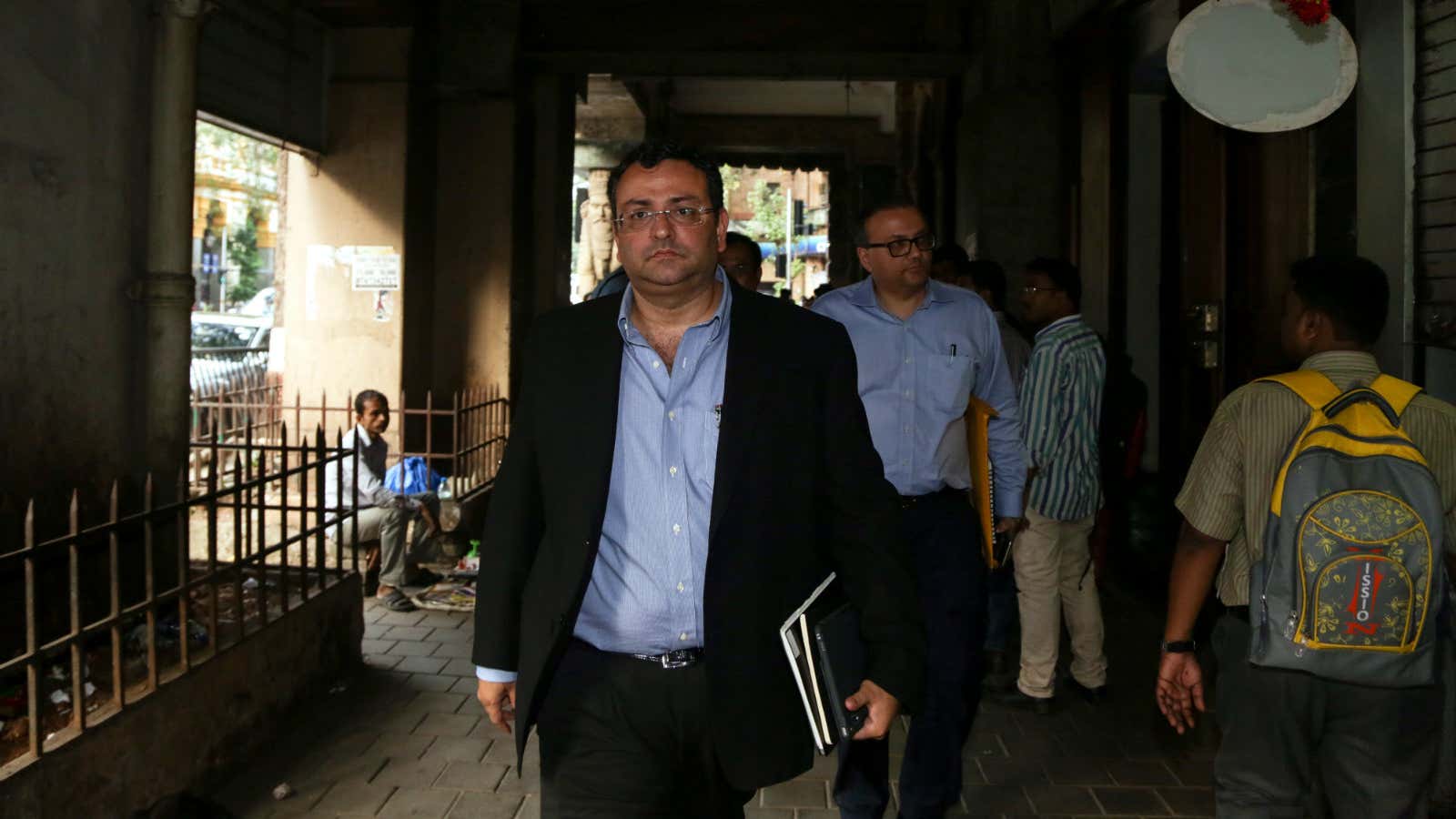Ousted Tata Sons chairman Cyrus Mistry has been dealt another blow: On Dec. 13, he was voted out as a director from the board of Tata Consultancy Services (TCS), India’s largest IT firm and the Tata Group’s crown jewel.
The voting took place during an extraordinary general meeting (EGM) (pdf) that went on for some two hours. A majority of TCS shareholders voted for Mistry’s removal. But there is more to TCS’s shareholding pattern than meets the eye.
More than 73% of its total shares are held by the promoter and promoter group, which includes Tata Sons and other group companies, according to BSE data. Tata Sons is the holding company of which Mistry was chairman till he was sacked on Oct. 24.
And with the promoter group led by Ratan Tata having openly declared that it wants Mistry out of every Tata Sons company, almost 100% of shareholders in this section voted against him during the TCS EGM. However, institutional investors (typically mutual funds, banks, and investment firms) and retail investors backed Mistry during the TCS voting. Around 42.54% of the institutional shareholders and 78% of other public shareholders (who voted) supported the 50-year-old.
Later in the night, Mistry’s office issued a statement saying this voting was a moral victory for him.
“Almost 20% of shareholders of TCS—that accounts for more than 70% of non-promoter shareholders—supported Cyrus by voting against the resolution or abstained (expressing their disapproval of the promoter actions),” the statement said.
Over to other boards
Unfortunately for Mistry, even when it comes to other boards, things may not go in his favour.
The Indian Hotels Co, which operates the Taj group of hotels, will hold an EGM on Dec. 20. Tata Steel will hold its EGM on Dec. 21, followed by Tata Motors’ on Dec. 22 and Tata Chemicals on Dec. 23.
Not all Tata Group firms are majority owned by promoters; some firms have higher public shareholding. For instance, the public owns 67% of all Tata Motors’ shares, which is perhaps why Tata Sons has been trying to beef up its shareholding in India’s largest auto company.
On Dec. 14, Tata Sons bought 50 million Tata Motors shares on the National Stock Exchange at a 7% premium. Some media reports suggest that Tata Sons is asking investment banks (part of institutional shareholders) to buy more of Tata Motors shares so that the 143-year-old group gets an edge in voting Mistry out. Tata Motors, like TCS is critical, because it generates the highest revenue for the group.
Here are the Tata companies where public shareholding is higher than the promoters’:
Some proxy advisory firms like IiAS, who offer consultation services to shareholders on matters of corporate governance and shareholder rights, are for booting Mistry out. “IiAS has recommended shareholders to vote for the proposal to remove Cyrus Mistry. Our decision focuses on an outcome that enables Tata companies to operate with minimum disruption—by maintaining the existing chain of command between Tata Sons and the operating company,” the firm says on its website.
Now, let the voting games begin.
